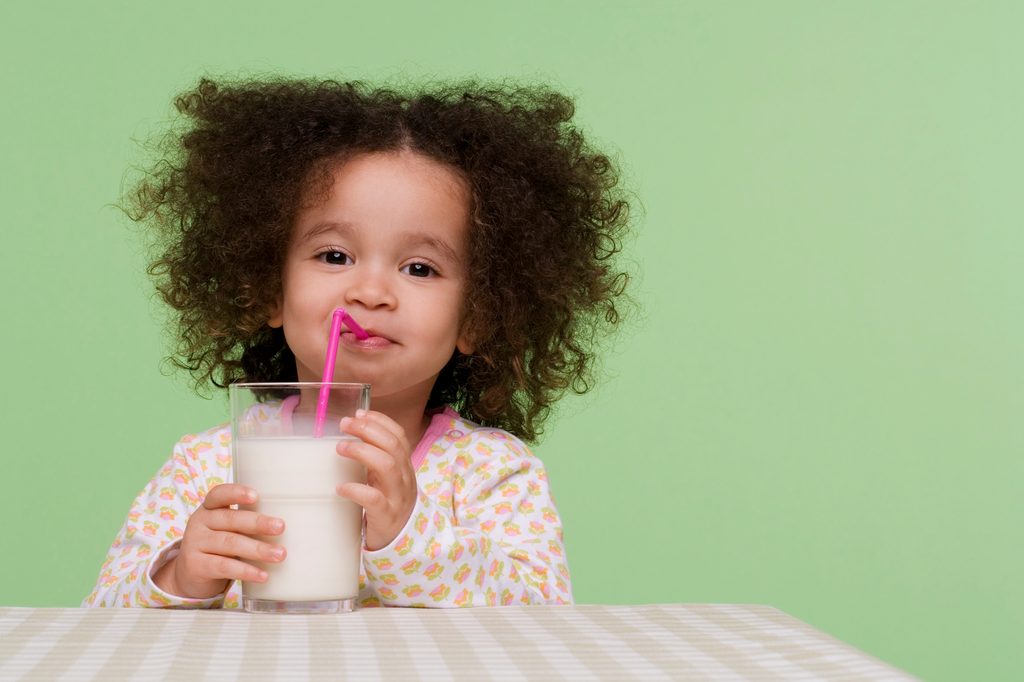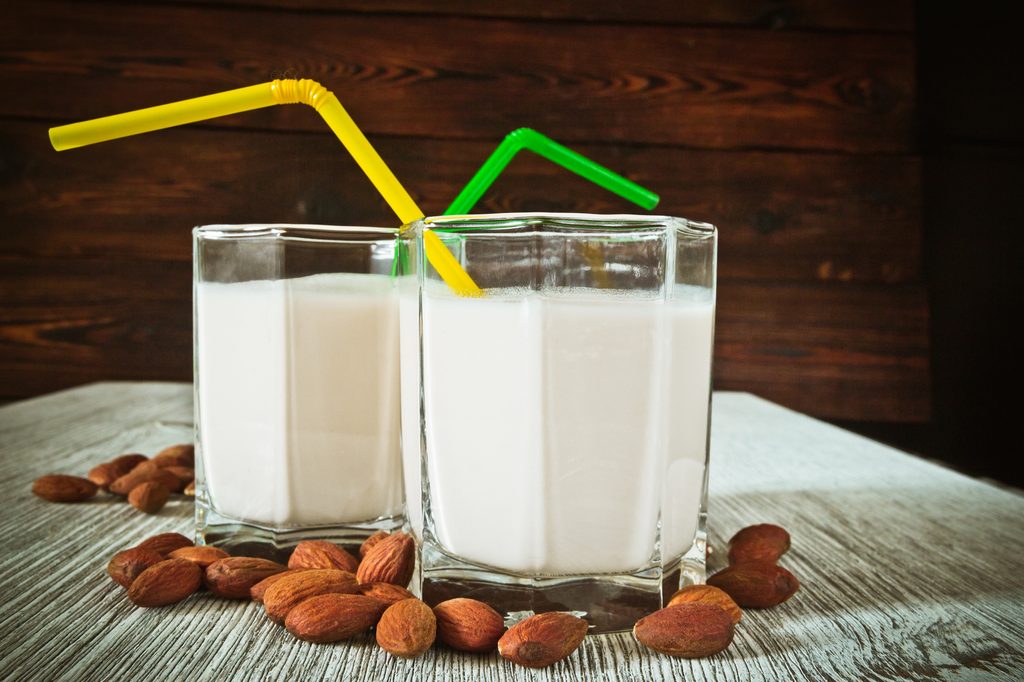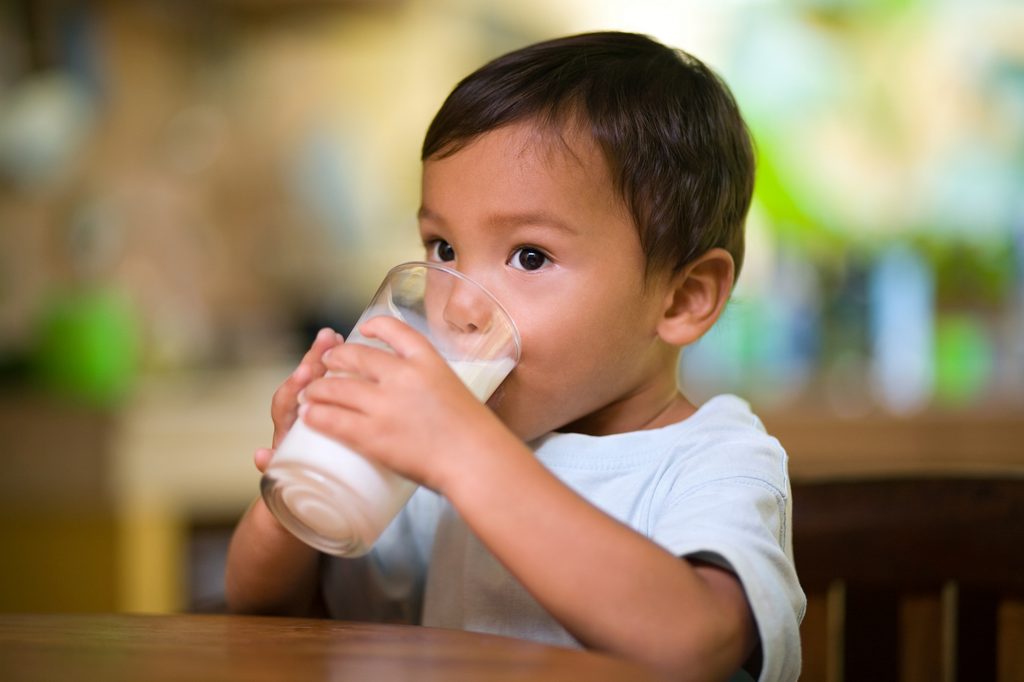
Milk is an important part of the diet of toddlers. Milk, along with other fortified dairy products or soy beverages, plays an integral role in helping toddlers grow strong bones and teeth. Generally speaking, milk helps your toddler’s body grow. Almost all cow’s milk has been fortified with calcium and vitamin D, crucial nutrients for your growing child. But what’s a parent to do if they are vegan or have children who are allergic to cow’s milk? These parents often wonder if their toddlers can have almond milk or other plant-based drinks as an adequate substitute for cow’s milk.
With the recent increase in the popularity of plant-based drinks and almond milk, parents have been confused about whether their toddlers should be drinking these beverages instead of cow’s milk. If you’ve been curious whether toddlers can drink almond milk or other plant-based drinks, this should help clear up any confusion.
Why is milk so important?

Experts suggest that cow’s milk shouldn’t be introduced into your child’s diet until they reach their first birthday. Before that, he should be drinking breast milk or formula exclusively. As the American Academy of Pediatrics notes, cow’s milk can be too harsh on an infant’s digestive system so they recommend waiting until after the first birthday to make the switch from breast or formula feeding to whole milk.
There can’t be any denying the importance milk plays in a child’s development: as per the CDC, pasteurized cow’s milk contains both vitamin D and calcium which are important in aiding in the growth of healthy, strong bones and teeth.
Can toddlers have almond milk?

Almond milk has become increasingly popular as a milk alternative beverage, but the reviews are mixed on the benefits of giving it to your toddler. Lots of families prefer almond milk over cow’s milk for a variety of reasons, including allergies, sensitivities, diet, and personal preferences. Toddlers can safely drink almond milk but many experts are concerned that it doesn’t provide the required vitamins and calcium that cow’s milk does. Healthline warns that “although almond milk has vitamins A and D, it’s relatively low in protein and calcium, as compared to cow’s milk or breast milk.”
There’s also the issue of added sugars. There are brands of almond milk that contain added sugar, which parents should note before giving it to their toddler, as she doesn’t need to be consuming extra sugar. The good news is that there are almond milk options available that don’t contain added sugar and are fortified with calcium. That makes it a good alternative to cow’s milk, and parents just need to be vigilant and read labels when selecting which brand to purchase.
Other plant-based drinks

On the other hand, experts do not advise that children under the age of five drink plant-based drinks such as milk made from rice, coconut, oats, hemp, or other blends. In 2019, national guidelines advised against giving plant-based drinks to children under age 5 because they were said to lack the key nutrients toddlers need to grow and develop.
“In the last five to 10 years, there has been an explosion of interest in plant-based milk. More and more parents are turning to them for a variety of reasons, and there’s a misconception that they are equal somehow to cow or dairy milk, but that’s just not the case,” Megan Lott, deputy director of the Healthy Eating Research, explained, according to CNN. Again, the lack of vitamin D and calcium and the possibility of added sugar are the cause of concern with plant-based drinks.
However, now that it’s 2024, there are many who claim that as long as you are buying fortified plant-based milk with no added sugar, it can be just as nutritious for toddlers as cow’s milk. Fortified soy milk can provide the same nutritional benefits as cow’s milk and there are so many other plant-based drink options available. In an article discussing the benefits of plant-based drinks for toddlers, The Globe and Mail notes that pea milk, made from yellow peas, is also a great alternative to cow’s milk as it contains 8 to 10 grams of protein per cup and is also fortified with calcium and vitamins A and D.
What to look for in non-dairy milk

If you do decide to give your toddler almond or other non-dairy milk, there are some things you should look for. As we said above, choose an option that is fortified with calcium and vitamin D, but also look for one that contains protein, fat, fiber, and iron, pediatrician Dr. Joel Gator told Very Well Family. “Look for a very clean milk alternative with few preservatives,” he suggested. “And one that is low in sugar.” Amber Rodenas, RN, LDN, also added, “When looking for a milk alternative, it is best to choose one with comparable nutritional value to cow’s milk in regards to protein and calcium content.”
Signs your toddler may have a dairy sensitivity

Many parents try non-dairy milk for their toddlers because they are worried they may have dairy insensitivity, like lactose intolerance. Lactose is a sugar found in milk and milk products, and when your body can’t break down or digest milk, it may be a symbol of lactose intolerance.
If your toddler is suffering from stomach aches and pains or bloating after eating or drinking milk products or is suffering from gastrointestinal issues after ingesting these products, it could be a sign of lactose intolerance. Contact your pediatrician if you suspect your toddler may have dairy insensitivity or lactose intolerance so you can come up with a plan to ensure they are getting the needed calcium and vitamin D.
The bottom line: Almond milk is suitable for toddlers as long as parents do their due diligence and ensure they’re fortified and don’t contain any added sugars.




